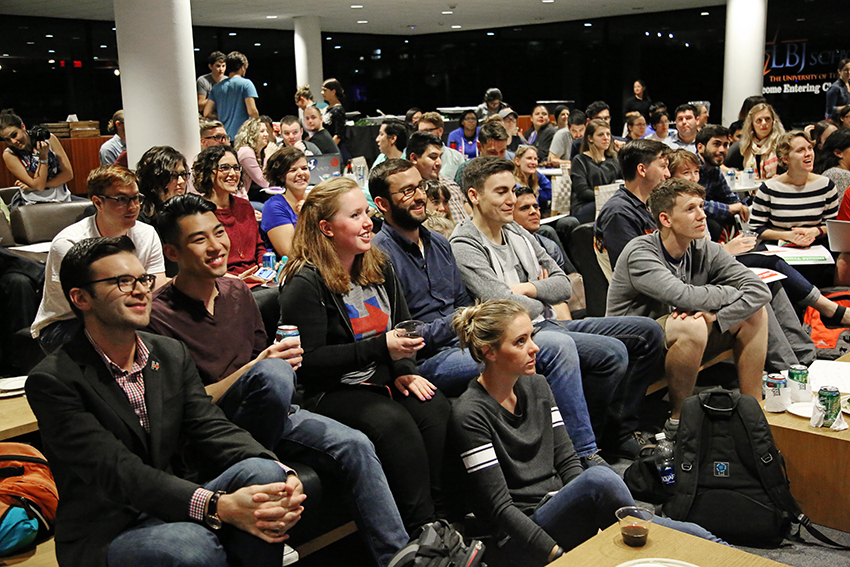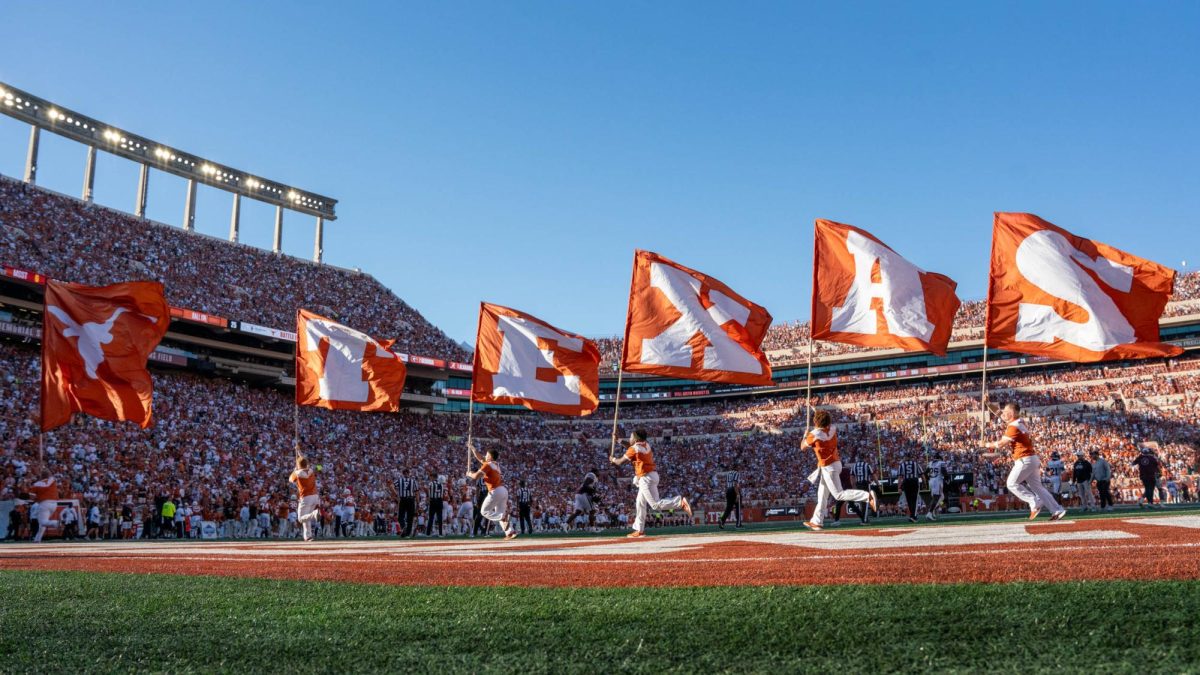Presidential candidates Hillary Clinton and Donald Trump sparred in the last presidential debate of the election year Wednesday night in their final chance to convince on-the-fence voters.
According to a Daily Texan poll conducted at the beginning of October, 64 percent of University students polled were planning to vote for Clinton, 14 percent were undecided and approximately ten percent were planning to vote for Trump.
Zachary Long, communications studies and human relations junior, helped campaign for former Republican presidential candidate Jeb Bush during primary season. Despite his previous allegiance to the Republican candidate, Long is voting for Clinton in the general election.
“Going and voting for someone I was against in the primaries is difficult,” Long said. “I could vote third party, but I know a third party candidate is not going to win. I decided to pick one of the two and what he says bothers me, rubs me the wrong way, and downright angers me. In terms of temperament, experience and, hell, who I just like more, I’m voting for her.”
For Long, Trump’s rhetoric about immigration was a definitive factor in his choice to vote for Clinton, as one of Long’s friends is an undocumented immigrant who fears she could be deported.
“I have one really good friend whose parents brought her here illegally and now she’s facing the fear that she could be deported,” Long said. “She’s been working hard the past five years to be a teacher. The fear-mongering makes me upset.”
Government professor David Prindle has published research in voting and parties. In his opinion, Clinton won the debate from a logical standpoint, taking a hard stance against Trump.
“In terms of logic and adhering to the facts, Hillary Clinton won 100 to zero,” Prindle said after the debate. “But the psycho-fascist monster that uses nothing but incendiary rhetoric does appeal to millions of people.”
Prindle said he hasn’t adhered to any one party in past elections, but said this election holds a different significance for him.
“I’m a political independent,” Prindle said. “In my career as a citizen, I’ve voted for republicans, democrats and independents. I often know who I support from the beginning, but I don’t think I’ve ever been so frightened of one candidate winning as I am this election.”
College Republicans president Robert Guerra said he remains an undecided voter despite Wednesday being the final presidential debate.
“Honestly, I was really disappointed with Trump’s performance,” Guerra said. “I came into this debate as an undecided voter and I was hoping that I could finish the debate supporting someone, but I’m sill not there yet.”
Wednesday’s debate was the last debate between Clinton and Trump. Early voting begins on Oct. 24 and will last until Nov. 4. Voting is available to the University community at the Flawn Academic Center.















